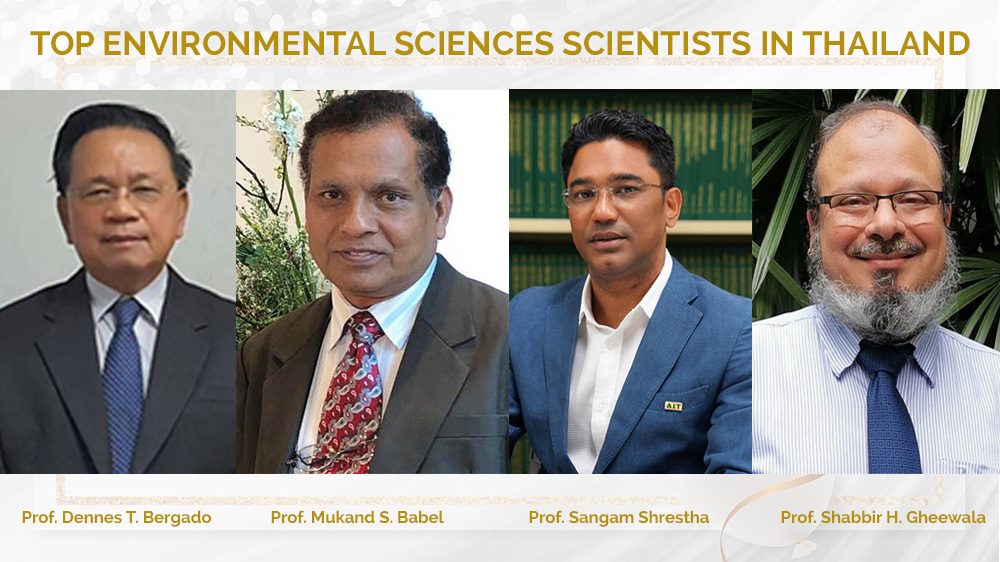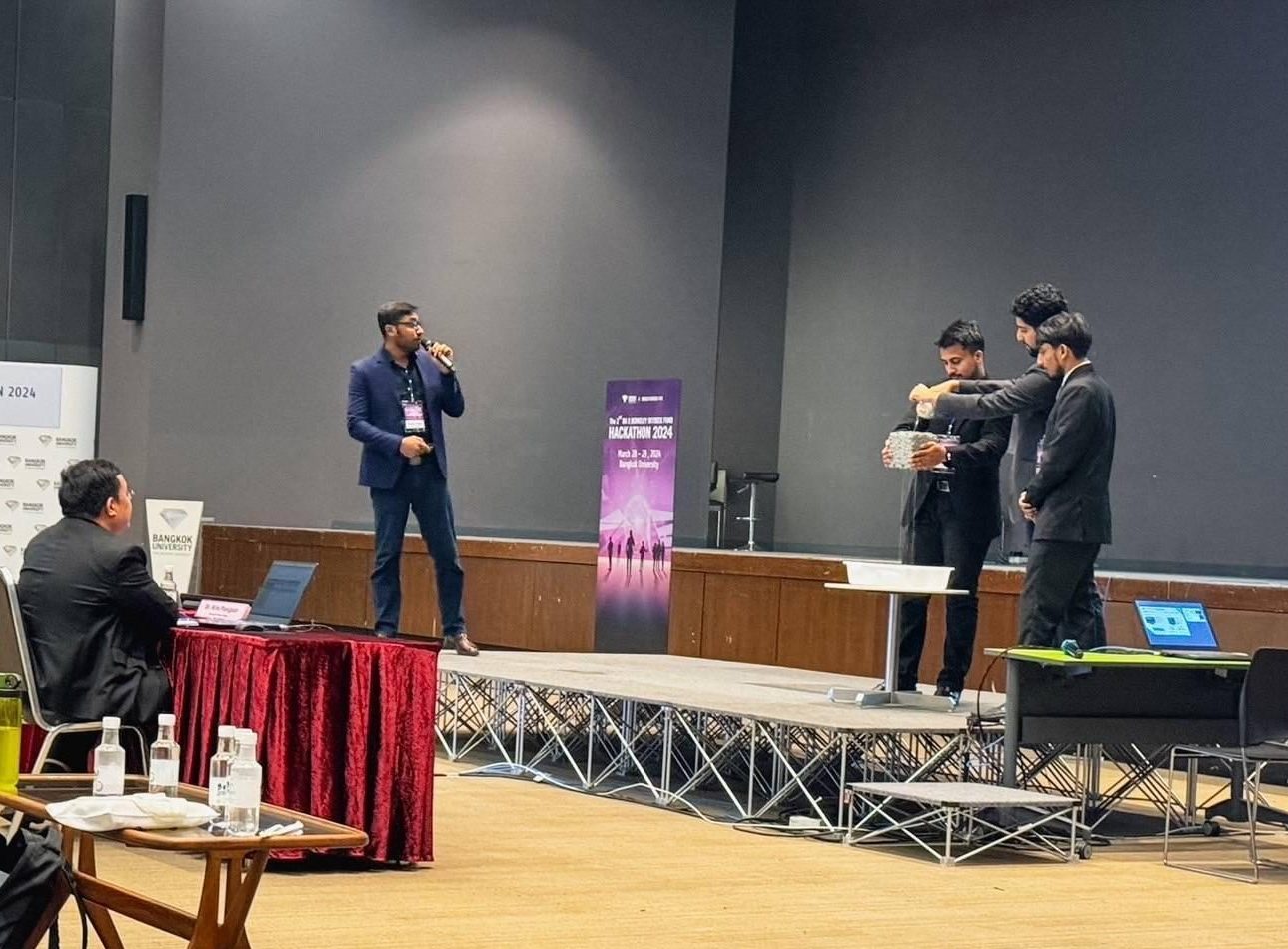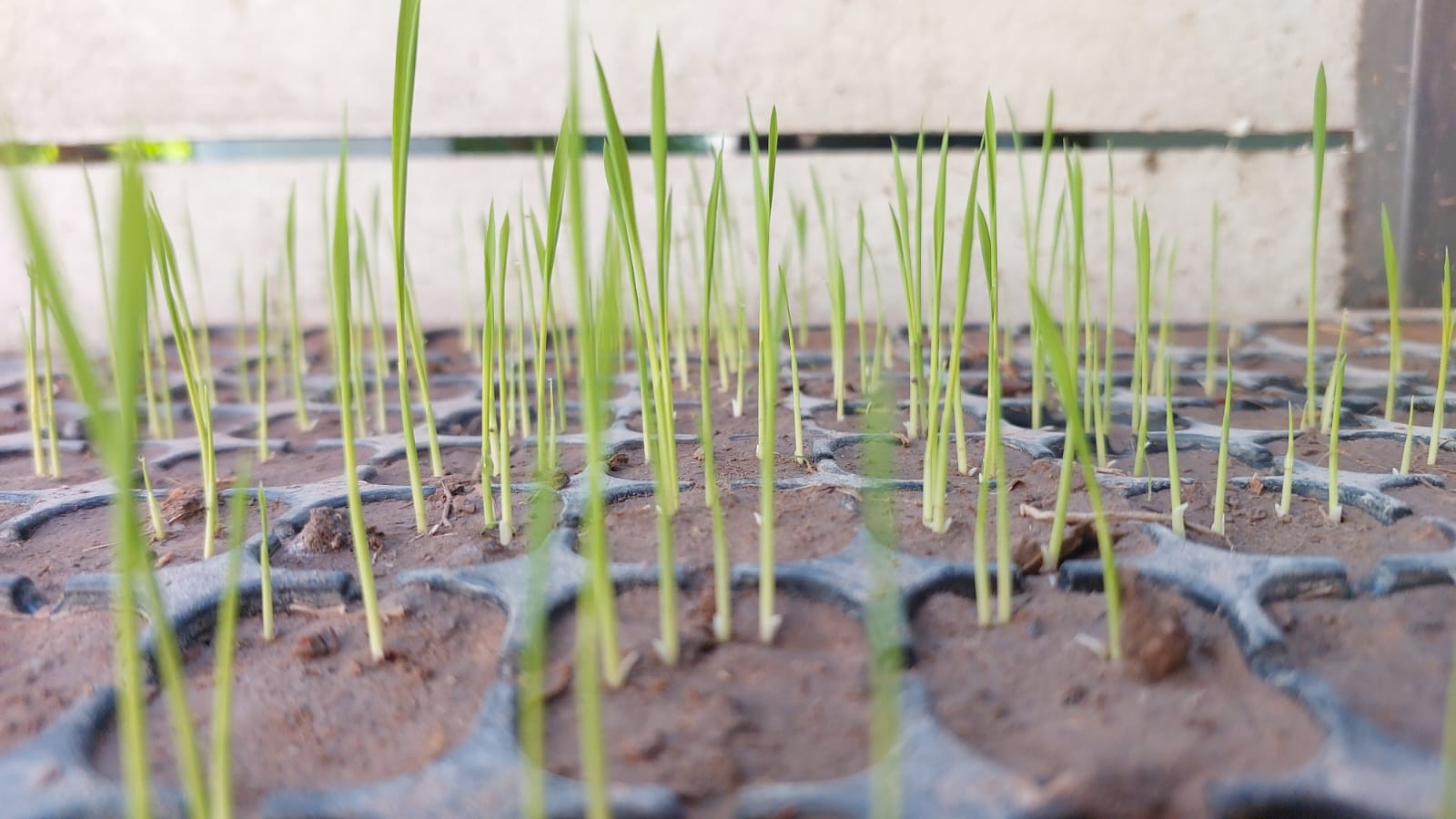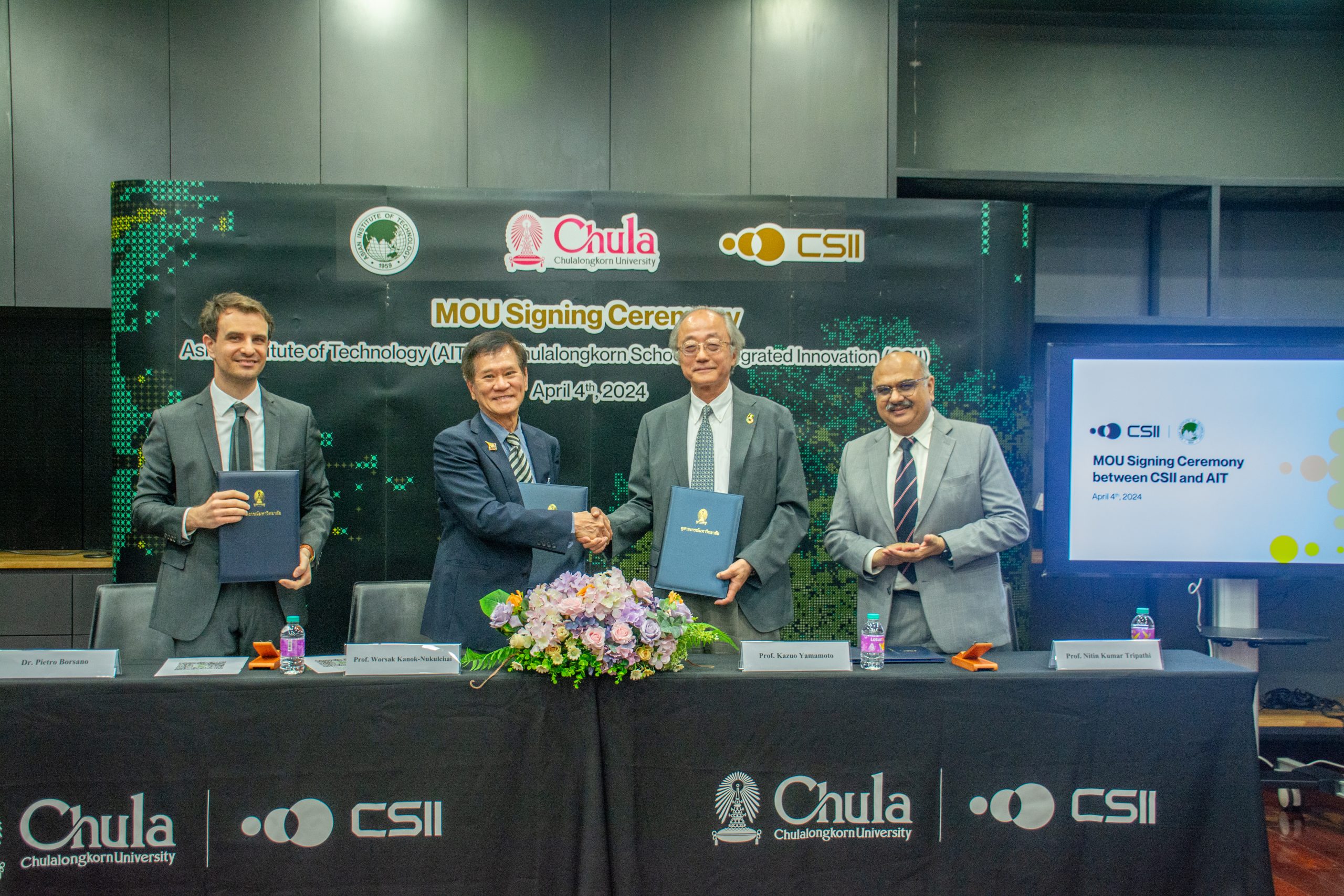By Office of Public Affairs
Four AITians have been recognized among the TOP 5 scientists in Thailand in Environmental Sciences in the 1st edition of the top scientist ranking by Research.com. The recognized scientists are AIT alumnus Prof. Shabbir H. Gheewala of the King Mongkut’s University of Technology and three AIT faculty members; Emeritus Prof. Dennes T. Bergado, Prof. Mukand S. Babel, and Prof. Sangam Shrestha of the School of Engineering and Technology.

Research.com is a top research portal for scientists with a mission to inspire scholars, entrepreneurs, and decision-makers globally, introduce leading scientific experts, and share their research in different countries and institutions.
The rankings are based on the h-index, publications, and citation values collected on December 6th, 2021, and the awards and achievements of the scientists. They were developed after examining more than 9100 profiles in the discipline. Each profile was manually verified and cross-related against the publications in various credible sources.
With 216 publications, 8930 citations, and 59 h-index, IT alumnus Prof. Shabbir H. Gheewala is ranked as the top scientist in Thailand in Environmental Sciences by Research.com. Likewise, Prof. Dennes T. Bergado was ranked second with 131 publications, 8404 citations, and 54 h– index. Prof. Mukand S. Babel, with 135 publications, 4729 citations, and 35 h-index, and Prof. Sangam Shrestha, with 141 publications, 5171 citations, and 31 h-index have been ranked fourth and fifth respectively in the rankings.
Prof. Shabbir H. Gheewala
Prof. Gheewala is one of the most influential environmental scientists in Thailand, best known for his study in the field of agriculture, ecology, and sustainability. His research covers issues surrounding waste management, life-cycle assessment, renewable energy, biofuel, fossil fuel, and greenhouse gases. His most published works are in the fields of Life-cycle Assessment (42.12%), Waste Management (30.77%), and Greenhouse Gas (27.84%).
He interconnects global warming, embodied energy, environmental engineering, and environmental impact assessment in investigating issues within the life-cycle assessment. His research in environmental engineering intersects with topics in electricity generation and landfill gas. As part of one scientific family, he deals mainly with the area of biofuel, narrowing it down to issues related to the natural resource economics, and often combustion and cost of electricity by source. His multidisciplinary fossil fuel research incorporates sugar, petroleum, and biomass elements.
“Science and engineering are essential in protecting the environment; however, the contribution of everyone in society through sustainable lifestyles is imperative. Education is the key to raising awareness in society at large, along with training scientists and engineers to care for the environment. The massive amount of waste generation, including plastic waste, is a direct consequence of the current production and consumption patterns of a so-called linear economy. Simple actions such as using products until their designed lifetime and avoiding excessive storing and wastage of food are small steps toward the right direction. The awareness that goes behind thinking about these day-to-day activities will lead to larger changes at the societal level.”
– Prof. Shabbir H. Gheewala
Emeritus Prof. Dennes T. Bergado
Fulbright Scholar and Professor Emeritus Dennes T. Bergado started his research in probabilistic and reliability analyses of geotechnical properties and structures. Subsequently, he branched out to Ground Improvement and Geosynthetics. From the results of his applied research, he successfully pioneered the use of prefabricated vertical drain (PVD) to improve the soft Bangkok clay in subsiding ground environment with subsequent combinations of vacuum preloading (Vacuum-PVD) with notable applications for support of airport runways, motorways and highways as well as the effects of heat on clay compressibility and flow properties with application to innovative Thermal-PVD.
Also, his research projects involved new and creative ideas regarding deep clay-cement (DCM) mixing piles such as optimum cement contents and fundamental parameters as well as reinforced or stiffened DCM called SDCM piles to reinforce and increase bearing capacity of soft clays.
Subsequently, his research works consisted of the performance of metallic and polymer geogrids soil reinforcements as well as sustainable mitigation of rain-triggered landslides and control of soil erosions using roots of vegetations combined with limited life geosynthetics (LLGs) made of natural fibers. He also did sustainable research work on recycled waste materials by mixing used rubber tire chips and silty sand to create lightweight geomaterials for lightweight embankments fill suited for weak and compressible soft Bangkok clay.
“This recognition means a lot to me, and I embrace it warmly with pride from my past achievements, which have been possible with the support of my students.
We can enhance human well-being while simultaneously protecting the environment with actions such as investments in ecosystem conservation, management systems for promoting recovery of marine life, watershed restoration schemes, and prevention of riverbank and coastal erosion. Similarly, risk assessments and mitigations of debris flows and landslides, forecasts of flooding and flood protection schemes, promotion of waste containment systems, and construction of water supply reservoirs are some of the essential key actions for environmental protection in the future.
Individual action is a must. We can all support by promoting less pollution by using renewable energy such as solar and wind energy and electric and hybrid vehicles; reducing, reusing, and recycling waste; and reducing soil erosion by planting grass, shrubs, and trees. Furthermore, we should also promote the use of by-products, natural fibers, and bio-plastics, such as polymer and natural fiber geosynthetics, in constructing reinforcements, filtration, drainage, and separation functions in combination with gabions and mattresses for mitigations of soil slope failures (landslides) and soil erosions caused by excessive rainfall due to climate change.”
— Prof. Dennes T. Bergado
Prof. Mukand S. Babel
Best known for research in hydrology, integrated water resources management, climate change impact and adaptation, water security assessment and enhancement, and hydro-meteorological extremes, Prof. Mukand S. Babel has published extensively in wide range of areas in environmental sciences, covering mainly water resources management and climate impact and adaptation in water and agriculture sectors.
Through inter- and transdisciplinary research, he combines natural sciences and engineering subjects such as climatology, hydrology, and water resources modeling with socio-economic and environmental aspects to find solutions to complex water and environmental problems involving diverse stakeholders from policy and practice domains.
There is no substitute for water; at the same time, water is essential for humankind and the ecosystem to survive. The world’s water cycle has been severely altered due to global changes such as population explosion, climate variability and change, land use change, economic growth, pollution, etc. This has threatened the earth’s climate and freshwater availability. A holistic and transdisciplinary approach to research and education is essentially required to enhance water security which encompasses aspects of water for people and the environment, protection against water-related disasters, productive uses of water in economic sectors, and water governance. Water is also an enabler and entry point to successful climate action. Hence, investment (human resources, capital…) in the water sector can help not only in enhancing water security but also energy, food, and climate securities leading to sustainable and resilient global development.
— Prof. Mukand S. Babel
Prof. Sangam Shrestha
Noted for his work in hydrology, drainage basin, and groundwater, Prof. Shrestha’s area of research also includes water resources, water resource management, and sampling climate model. He most often published in the field of Hydrology (42.29%), Drainage basin (25.71%), and Water Resources (19.43%).
His research in hydrology intersects with topics in range and representative concentration pathways and climate models. His water quality study incorporates themes from soil and water assessment tools, principal component analysis, hydrology, land use, land-use change, and forestry.
His study incorporates disciplines such as wastewater and linear discriminant analysis in addition to principal component analysis. Drainage basin is often connected to water resources in his work. His research in sampling intersects with topics in regression analysis and scale.
“Transdisciplinary research approach is a way forward to sustainable water and environment management in an uncertain world. This often requires collaboration among multidisciplinary scientists and multisectoral stakeholders”.
–Prof. Sangam Shrestha







